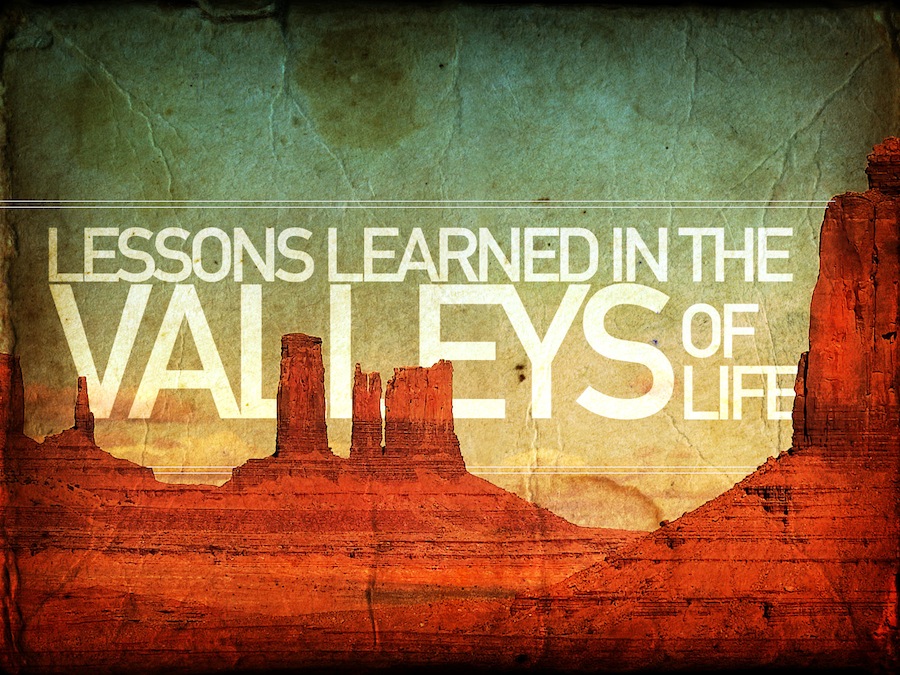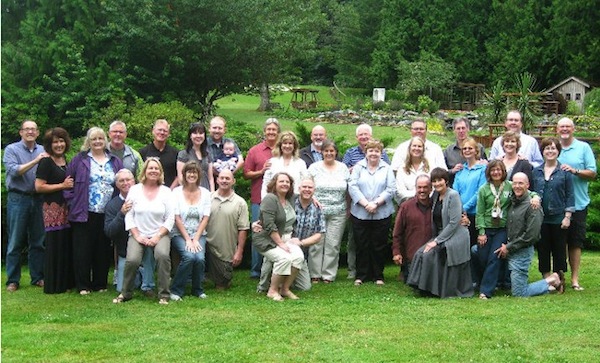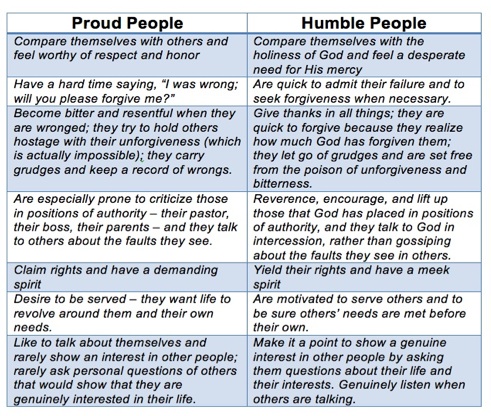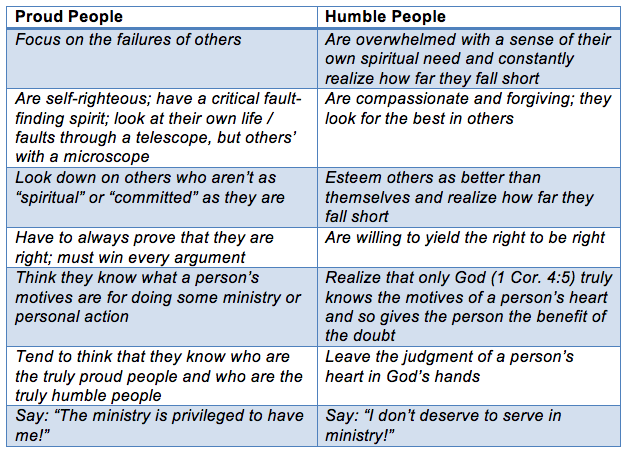
It was the Spring of 1993. The church that God had led my wife, Lisa, and I to plant back in the Fall of 1990, was two and a half years old. Lisa and I were up in the mountains of northern Arizona for a few days of much needed R & R.
Where it all started
Before I finish this story, allow me to first take you back to the beginning of our church plant.
I remember talking with Lisa late one evening (in May 1990) about possible names for this “new” church that God had called us to plant. We decided on “New Life Community Church.” The reason we decided on that name was primarily because we had always been heavily involved with Campus Crusade for Christ International and they had a movement that was referred to as New Life 2000. It was a vision to take the gospel to all peoples by the year 2000. We liked the name and we liked the vision. Thus, New Life Community Church was born.
The first year was amazing! It seemed like everyone was inviting new people, volunteers were coming forward left and right, growth was happening, giving was generous and there were very few complaints. I remember thinking during that first year (especially the first six months), “Wow! If this is what church planting and pastoring is like, then I feel like I’ve died and gone to heaven!”
This was the dream that God placed in my heart as a teenager – to plant a church in the suburbs of metropolitan Phoenix, where (at the time) there were hardly any churches.
The honeymoon is over
Well, it didn’t take long for the “honeymoon” to fade and reality to come crashing down.
Over the next 12-18 months that followed our “first year honeymoon,” it seemed like everyone began to complain about something. By this time, half of our original launch team had moved on to other churches. Now, all the “Church Planting Experts” had told us …
“Expect that within the first year of a church plant, 50% of the people you started with, will no longer be with you. They will move on to other churches. These people will come with their own (conscious or unconscious) agendas, as well as certain “expectations” and when their agendas and expectations are not met, they will move on. Don’t worry, it’s normal and part of almost all church planting endeavors.”
When I first heard that statistic, I remember thinking, “Thanks for the advice. But you just don’t know the people that form our core team. We know them and they know us. It will be different for us.” (Note… Important Lesson: Listen to those that have been down the road and have studied these things thoroughly…it will save you a great deal of unnecessary headaches and heartaches.)
During our second year and the beginning of our third year, there were various factions vying for “their” particular ministry emphasis to be implemented as part of this fledgling new church plant. On one such occasion, after I had “had enough” with these two feuding groups, I decided to “step in” and try and make peace.
I was in for a surprise . . . In my desire to help each side “calm down” and quit vilifying each other, I suddenly became the target of both groups! The culmination came after a phone call by one proponent who proceeded to verbally shred me and then slammed the phone down, telling me that he “never wanted to talk to me again.” From that day on, they left the church, never to return. (Side Note: Because of these events, I began a nine-month intensive sermon series on what it means to truly “love one another” in the Fall of 1993).
During this time, we also had to deal with the sad and messy fallout of a staff member whom we had to ask to resign. In addition, we were meeting in a tiny storefront space that we rented and were outgrowing. We needed to think about either buying land or building a new building (and therefore raise $10 million for “bricks and mortar” – which didn’t excite me and only made my heart heavier).
On top of these challenges, I was wearing too many “hats.” I had become weary. The church had now plateaued. The “buzz” of excitement and the adrenaline of that first year had worn off and was now long gone. The future looked bleak (at that moment anyway).
Back to the mountains in northern Arizona
Return with me again to the scene of Lisa and I in the mountains of northern Arizona that Spring of 1993. I turned to her with a heavy heart and said, “Lisa, I think the ride is over. I can’t do this anymore. I feel like the dream has died. I feel like I’ve taken this church as far as I can. I really thought I had ‘thick skin’ – I guess I don’t. Maybe it’s time to turn over the reigns to someone else and we’ll move on to what God may have for us next. Maybe I should drop out of ministry and go into business.”
I was so discouraged. I had never been hurt as deeply as I had during those first years of the church. Even though I spent most of my 20’s as a full time Youth Pastor at a large church – filling the pulpit periodically and doing all of the other typical “pastoral” duties, I had never experienced the level of personal pain, rejection and discouragement that were now part of my daily life.
Thankfully, my amazing wife was as supportive, encouraging and kind as you could imagine.
My Journal entries and God’s Word
Right after this conversation, I was reading through some old quotes that I had recorded in my Journal months before, and came across the following …
“Your greatest and most effective ministry doesn’t begin until you have been in one place for at least seven years. Too many pastors quit too soon.” (Howard Hendricks)
“It is doubtful whether God can bless a man greatly until He has hurt him deeply.” (A. W. Tozer)
God immediately brought to my mind several Scripture verses that I had committed to memory years earlier (Side Note: another great reason to memorize Scripture – God’s Spirit is able to bring His Word directly to mind in your hour of need). These verses were…
1 Corinthians 15:58… “Therefore, my beloved brethren, be steadfast, immovable, always abounding in the work of the Lord, knowing that your toil is not in vain in the Lord.” (NASB)
Galatians 6:9-10… “Let us not lose heart in doing good, for in due time we will reap if we do not grow weary. So then, while we have opportunity, let us do good to all people, and especially to those who are of the household of the faith.” (NASB)
Acts 20:24… “But I do not consider my life of any account as dear to myself, so that I may finish my course and the ministry which I received from the Lord Jesus Christ, to testify solemnly of the grace of God.” (NASB)
2 Corinthians 12:9… “And He has said to me, ‘My grace is sufficient for you, for power is perfected in weakness.’ Most gladly, therefore, I will rather boast about my weaknesses, so that the power of Christ may dwell in me.” (NASB)
The next day, I recommitted my life to the calling and the vision that God had placed in my heart years ago to plant this new church. I told Lisa, “No matter how hard this gets and no matter what I have to deal with, I will not quit until God makes it very clear that it is time to move on.”
God’s amazing provision
By God’s providential grace, less than six months after this weekend, He dropped in our little church’s lap an almost brand new shopping center, located right in the middle of the area where we felt called to plant our church!
The property was valued at $2.7 million and we were able to purchase it for $650,000. On top of this, the shopping center had several tenants (an insurance agent, a few doctors, a hair salon and a deli) that provided monthly income greater than our mortgage payment. We went from renting around 3,500 square feet and paying $4,000 a month, to owning a property with a building of 30,000 square feet and no monthly payment; and to top it all off, now had a positive cash flow of several thousand dollars a month!
Exactly one year (in February 1994) after that weekend away, where I almost wrote my letter of resignation, we as a church family moved into our newly built-out facility and celebrated all that God had done. It was a story that became another “rock memorial” for Lisa and I, demonstrating God’s faithfulness through all of the ups and downs of life and ministry.
And just as Howard Hendricks had said, I found that my greatest, most effective years of ministry began after I had been there for seven years. It was during our eighth year as a congregation that we adopted an unreached people group in the northeast regions of India and saw over 15,000 come to genuine faith in Jesus Christ!
The key lesson learned
I share all of this to simply make the following point (which is Lesson #8 in my series on “What I Wish (as a pastor) that I had Known, Understood, Believed and Lived 30 Years Ago”):
Lesson #8: Determination (i.e. perseverance, resilience) is absolutely essential if you are planting a church (as well as pastoring an existing church).
I was reminded again of the importance of “resilience” when reading a recent “Church Planter Assessment” of a pastor friend. The assessment lists 13 qualities that are important for a church planter to possess (to one degree or another) if they are to be effective. Quality number 12 is stated this way:
“Resilience: In other words, this person stays the course in the face of major setbacks, disappointments and opposition. They tend to remain optimistic in the face of setbacks when convinced they are in God’s will. They stay with projects through down times and see them through to completion. They possess the quality of perseverance. They tend to be persistent, even tenacious in accomplishing goals. They bounce back quickly from loss or discouragement. Their emotional down time is adequate, but not lengthy. They show evidence of emotional stability through the joys and disappointments of life. When they experience unjust situations, they do so without lashing out or hanging onto lingering bitterness.”
When I went through my personal “Church Planter Assessment” back in the Spring of 1990 with Dr. Charles Ridley, I can honestly say that I knew “resilience” would be important and needed in planting a church, but I never realized back then how absolutely essential it is.
I would encourage you to do a study sometime on the word “persevere” and “perseverance.” Scripture is loaded with passages that talk about the importance of not giving up (Galatians 6:9).
Just as Jesus “set his face like a flint” (Luke 9:51) on his way to Jerusalem, we need to have that same “resolve” to stay at the task and finish that which He has called us to do.
As someone once said, “The darkest part of the morning is right before dawn.”
In my personal experience, it seems that God always puts me through some of the most difficult tests of faith right before He wants to do something extraordinary. The temptation to quit is always close by. It’s as if during these times, God is purifying my heart (wanting to remove the “dross” in order to leave the gold) in preparation for what lies ahead (1 Peter 1:6-7).
I wish I could tell you that the last time I was tempted to quit was back in the Spring of 1993.
There have been several other occasions over the years where everything inside of me (selfishly) was screaming to “quit,” to “get out” of a hard, painful set of circumstances. But each time it’s as if God reminds me, “Paul, I have called you to this and until I call you to something else, stay at the task…keep your nose to the grindstone…stay faithful and keep doing ‘the next right thing.’”
God’s call to new things and big transitions
Obviously, there does come a time when God wants us to “move on” and “transition” to the next season, task or ministry. For me, it was the Spring of 2004, while sitting on the rooftop of an indigenous pastor’s home in the state of Orissa, India that God’s call came to “transition” from my pastorate to begin Global Training Network.
The desire to give the second half of my life on behalf of under-resourced indigenous pastors in the developing world (who have no access to quality biblical training) became all consuming for me.
When the time comes to transition out of your current role, God will make it clear as you diligently seek His face and are obedient to the light that He gives you each day.
God gives us enough light for the step we are on. Don’t wait until He shines the light on the next 8-10 steps. Take one step at a time and trust Him to show you the next step “in His time.”
So often, we want God to shine light on the entire staircase before we are willing to take even one step. I have found that God leads me one step at a time. Faithfully follow and obey what He shows you each day. He will be faithful to guide you to that place where He wants you. And in the midst of it all, always remember His promise: “…I am with you always, even to the end of the age.” (Matthew 28:20 NASB)
Finally, please don’t hear me say that if you “persevere” some amazing, awesome “God” story will result. It could and it might. But it may not. The main reason we “stay at the task” is because it is the right, God-honoring, God-glorifying thing to do – regardless of the results.
Conclusion
Next week I’ll share “Part 2” of this lesson on “determination.” We’ll be talking about the very fine line between “Spirit-led determination” (which is a great, God-honoring character trait) and “flesh-driven stubbornness” (which has the potential to completely dismantle our entire ministry effectiveness). We’ll talk about a very important question that we should ask ourselves on a regular basis, “Am I being determined? Or am I simply being stubborn?” Stay tuned…
 This last month has been incredibly busy, filled with many exciting ministry developments throughout Global Training Network. Because of that, it’s been awhile since I have shared an update on my blog.
This last month has been incredibly busy, filled with many exciting ministry developments throughout Global Training Network. Because of that, it’s been awhile since I have shared an update on my blog.
 Everyone was challenged to “see the nations” (ethne – or ‘people groups’) as God sees them – in need of the gospel of Jesus Christ, and of our call to make sure that this message gets out to all who have not heard.
Everyone was challenged to “see the nations” (ethne – or ‘people groups’) as God sees them – in need of the gospel of Jesus Christ, and of our call to make sure that this message gets out to all who have not heard. Another exciting part of the conference was the session taught by Dr. David Sills, (pictured to the right with me at the Desiring God conference) Professor of Christian Missions and Cultural Anthropology at The Southern Baptist Theological Seminary.
Another exciting part of the conference was the session taught by Dr. David Sills, (pictured to the right with me at the Desiring God conference) Professor of Christian Missions and Cultural Anthropology at The Southern Baptist Theological Seminary.
 Ed Stetzer, (pictured to the right with me at the Desiring God conference) President of LifeWay Research and a well-known author, gave this endorsement of Reaching and Teaching:“
Ed Stetzer, (pictured to the right with me at the Desiring God conference) President of LifeWay Research and a well-known author, gave this endorsement of Reaching and Teaching:“










